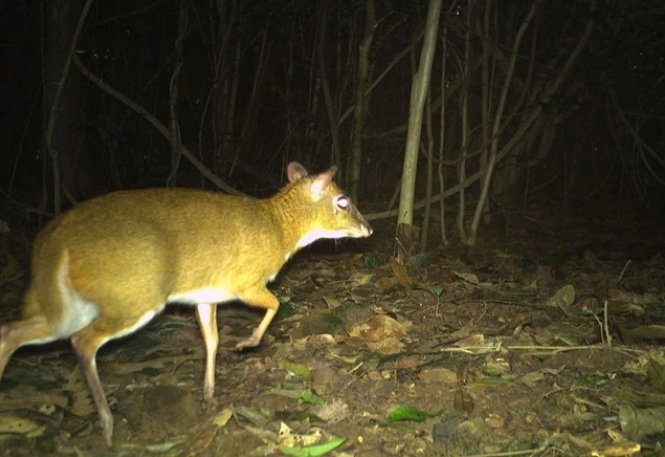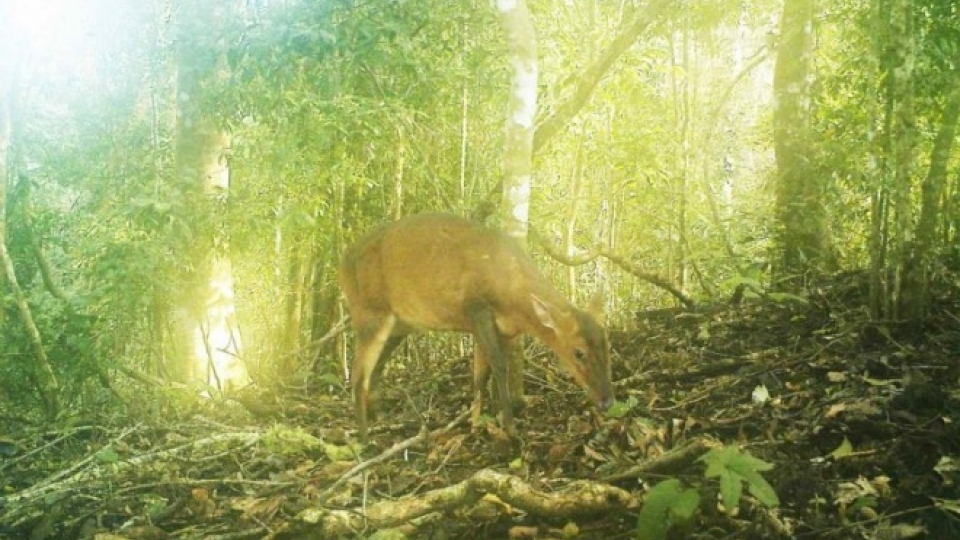Rare animals seen through camera traps in Phong Nha- Ke Bang National Park
VOV.VN - The management board of Phong Nha- Ke Bang National Park in the central province Quang Tri revealed that they have captured photos of 64 endangered, rare, and precious species of birds and mammals through the use of camera traps.

Accordingly, as part of a large-scale biodiversity monitoring programme taking place throughout the park, authorities have installed more than 210 camera trap stations. They recorded 64 species of wildlife, many of which are listed under strict protection categories both in Vietnam and internationally.
They include 34 bird species, six primate species, five ungulate species, six civet species, two ferret-badger species, and two weasel species, along with various small mammals such as striped rabbits, wildcats, pangolins, porcupines, and Truong Son rock rats.
Among the newly recorded species captured by camera traps are chevrotains, also known as mouse deer.
The chevrotain, one of the smallest ungulates in the world, usually weighs less than 4.5 kg. It has short, smooth fur, a white belly, a short tail, and a greyish upper body matching the color of its back. Its diet consists of young shoots, flowers, fruits, seeds, grasses, and fungi.
Behaviourally, chevrotains are solitary and extremely shy, primarily active at night in the deep forest to avoid predators. During the day, they hide in thick vegetation or caves.
Currently, the mouse-deer is classified as a rare and precious endangered forest animal and is listed in the Vietnam Red Data Book. Specifically, it is categorised under Group IIB according to Decree No. 06/2019/ND-CP.
Phong Nha- Ke Bang National Park is a repository of some of the most valuable wildlife gene pools in Indochina, said Pham Hong Thai, director of the management board of the park.
The data collected from camera traps, he said, represents priceless scientific assets that serve research and long-term conservation efforts.



